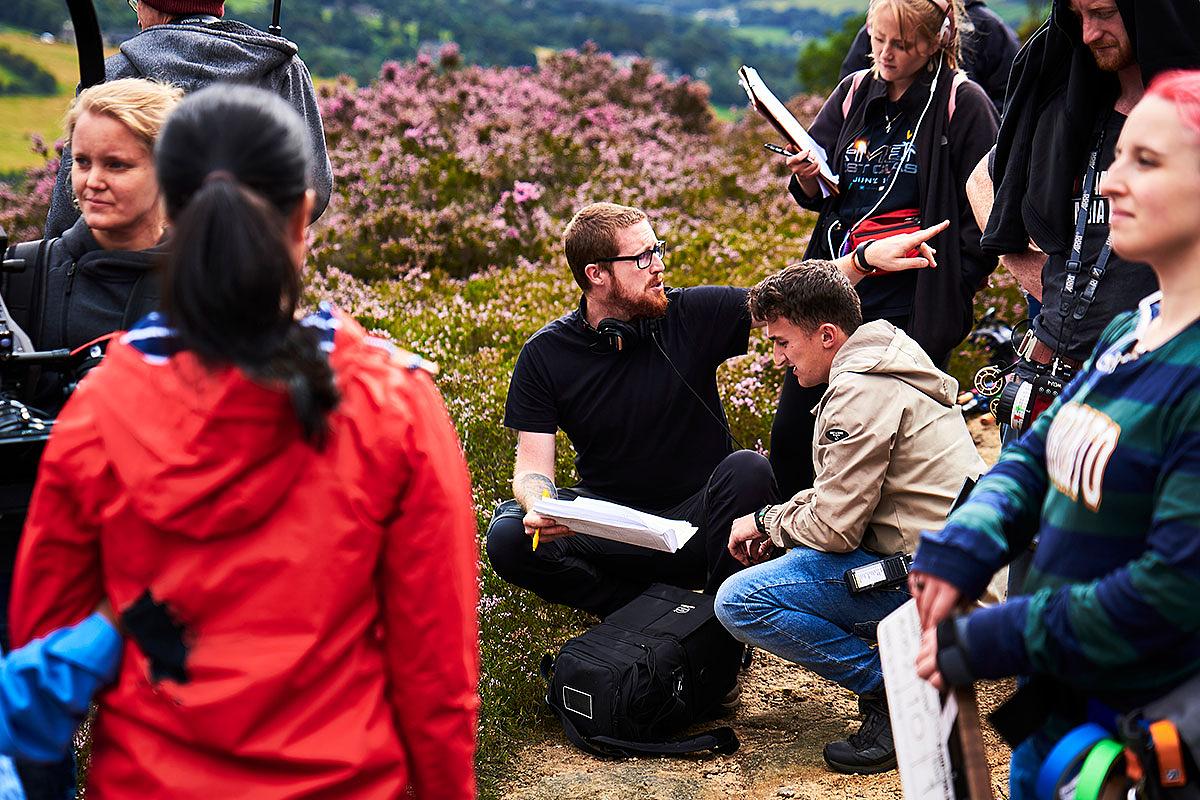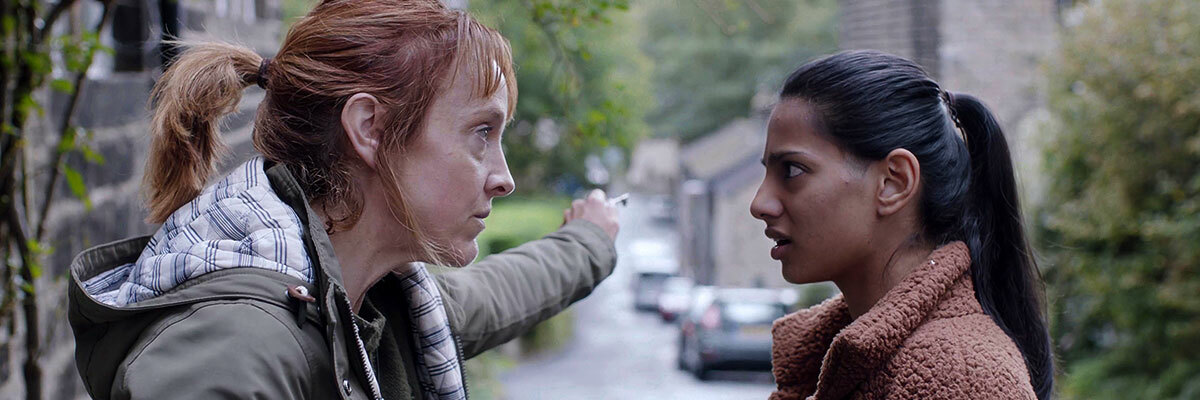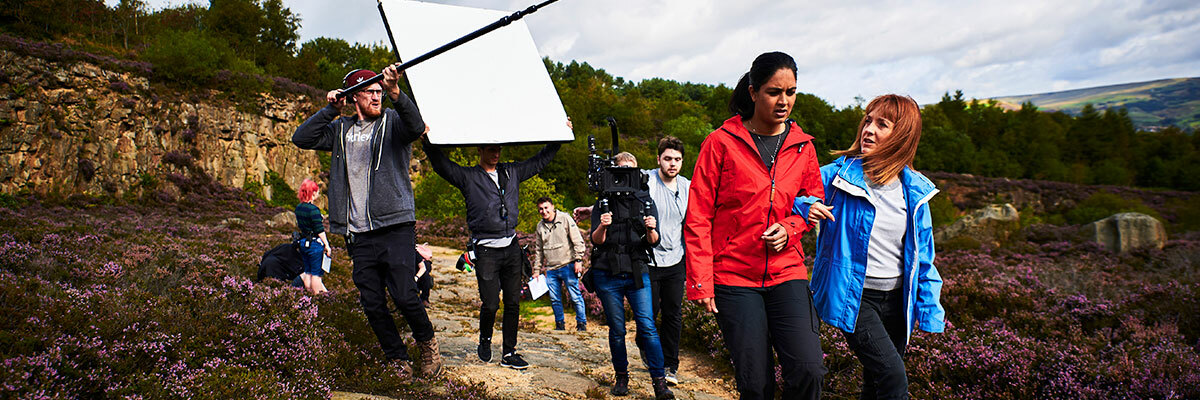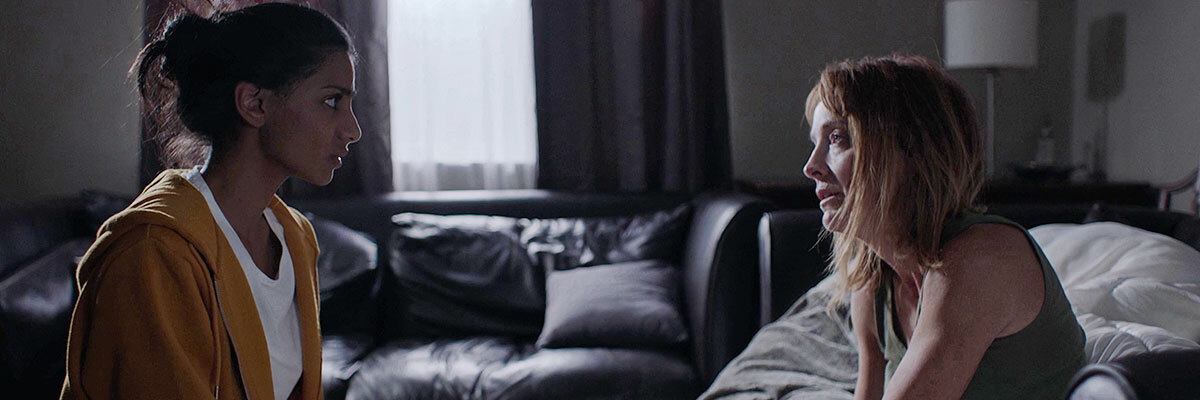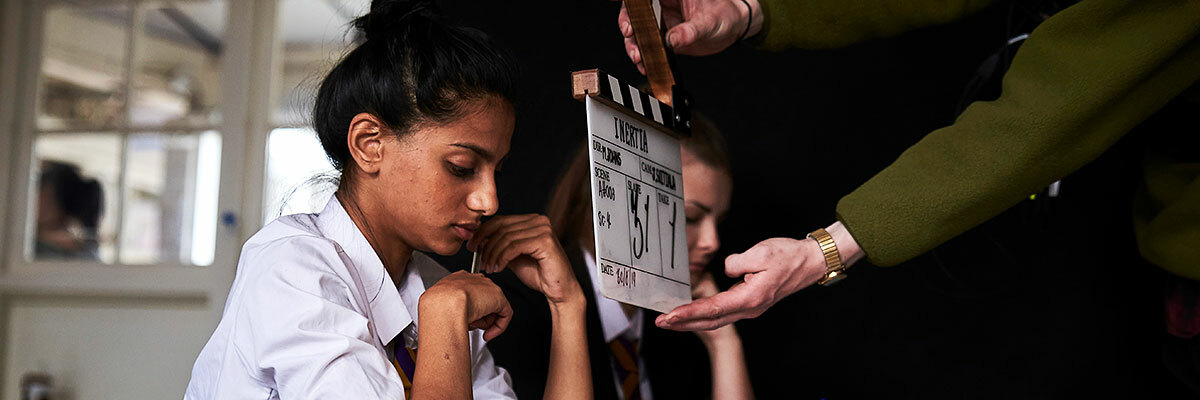Mat Johns talks to us about his latest short, Inertia - a study of grief and recovery, elevated with sci-fi flourishes.
The stunning moorland just east of Manchester is perhaps not the most obvious choice of setting for a high concept sci-fi. But for Inertia, the latest film supported by Film Hub North through the BFI NETWORK Short Film Fund to hit the festival circuit, the unlikely collision of bucolic countryside and cosmic forces has proved to be a potent combination.
When we caught up with writer/director Mat Johns to discuss the film’s extraordinary journey, it had just scooped the award for Best Drama Short at Out on Film, been shortlisted for the UK’s prestigious Iris Prize and was gearing up for a launch on All4. We talked to the Oldham-born filmmaker about using his hometown as a canvas for far-reaching sci-fi storytelling, and the importance of balancing genre, character and the fundamentals of effective filmmaking.
Inertia is a concept sci-fi made in Saddleworth. How did the idea to set a film like this on the semi-rural fringes of Greater Manchester come about?
I’m from Oldham. I spent a long time staying away from it - but the older I’ve got, the more I’m drawn back to it as a setting for the scripts I write. The idea of setting a soft, sci-fi-ish story against such a quintessentially northern British backdrop was appealing to me. I loved the idea of Rabia, Maddie and Leigh all being in this place. The people that live in former textile towns like Oldham, Rochdale and Bolton aren’t usually a part of these types of stories.
Inertia is a story about love, loss and friendship. It could be set anywhere, but it’s nice to be able to ground a film like this in a place that often gets a bad rap, and to be able to show the beauty that actually exists there.
Were there any challenges with realising the film’s genre elements within the constraints of a short?
To be honest, not so much. You have to tread a fine line when introducing genre elements, and the core of the film is ultimately about a respected teacher losing her love and herself, and then being helped by a pupil. The power of that story is key, first and foremost.
The sci-fi elements that instigate Maddie’s loss could be replaced with cancer, a car crash or some other random accident; it’d just be a slightly different film. The otherworldly nature of what happens to Maddie and the rarity of that event elevates the story - I think it gives the film a more cinematic feel.
The word “inertia” brings to mind two seemingly contradictory ideas. How does this duality play out in the film?
After Maddie loses Leigh, you could view her situation in a couple of different ways. You might say that she’s headed into a dark, lonely place; or that she’s stuck in stasis. But either way the result is the same: it’ll take the power of an external force - Rabia - to pull her out from that situation and change where she’s headed.
At the same time, the meteorite that turns Maddie’s life upside down is pulled from its journey through space by the external force of earth’s gravity. One thing leads to another, from the cosmic to the personal.
The film seems interested in both tragedy at a personal level and a more impersonal, cosmological view of the universe. How do these aspects of the short combine?
I’m fascinated with our own sense of importance. Some days we know we’re not the centre of the universe and can take things - good or bad - as they come and react positively. And then there are the days where we feel like the world or life or God or whoever we want to blame is intentionally kicking us in the guts, maybe seeing how far we can be pushed.
I think sometimes we all feel like the punchline to a joke we don’t understand. My friend used to say: “There are only two types of day in this world. A good day or a bad day.” I wanted to explore how a person might feel after something so rare and so devastating happens to them and someone they love. Did the universe or God target you? Or is it that shit just happens sometimes with no rhyme or reason? There’s something beautiful and terrifying about that.
That combination of other worldly elements and more intimate storytelling is evident in a certain strand of sci-fi filmmaking. Were there any sources of inspiration you drew on whilst making Inertia?
I haven’t intentionally drawn on any particular film, story or other artwork in the making of Inertia, but there’s undoubtedly influences all over it! Being at the end of the journey with the film now, I think my obsession with Denis Villeneuve’s Arrival has influenced the tone of the film. I adore that movie and Amy Adams is incredible in it.
I love films like Ex Machina and Annihilation; sci-fi with rich characters that are heavy-hitters emotionally, and packed with all the genre elements to boot. It’s so hard to strike that balance. Those three films are some of my favourites of the past decade, probably more. I’m not suggesting that Inertia sits anywhere near those movies, but who wouldn’t want to make those sorts of films?
I often find with sci-fi shorts in particular that a lot of screen time and energy goes into the world and its concepts. That’s cool and it can yield visually stunning results - but if the characters are neglected then I’m left feeling a bit blank emotionally. I didn’t want that to be the case with Inertia.
Can you tell us about the film’s festival journey and what its success means to you?
It’s been a funny old time to have completed a short film! We literally had our grading session booked for March 2020, but had to cancel due to COVID-19. Once the film was complete, we were then in unknown territory on the festival front. Thankfully the film was selected for Rhode Island in August, and has since been selected for further festivals including Out On Film, Bronzelens, Bengaluru, Iris Prize and Bolton. Inertia recently won best drama at Out On Film and the film is now eligible for the Oscars, BAFTAs and BIFAs.
For the filmmaking team involved, festivals broaden our horizons massively. Both in terms of audiences seeing the film, as well as us expanding our networks - so it’s fantastic to have Inertia doing well on the festival circuit. It’s a really exciting time!
What are you working on next?
Chris, who produced Inertia, and I are continuing to develop a slate of feature films across various genres that are set in the North of England. For the foreseeable future, we will be looking to finance a low-budget horror-drama via Leapling Films called Amira, which is loosely based on one of my previous short films.
